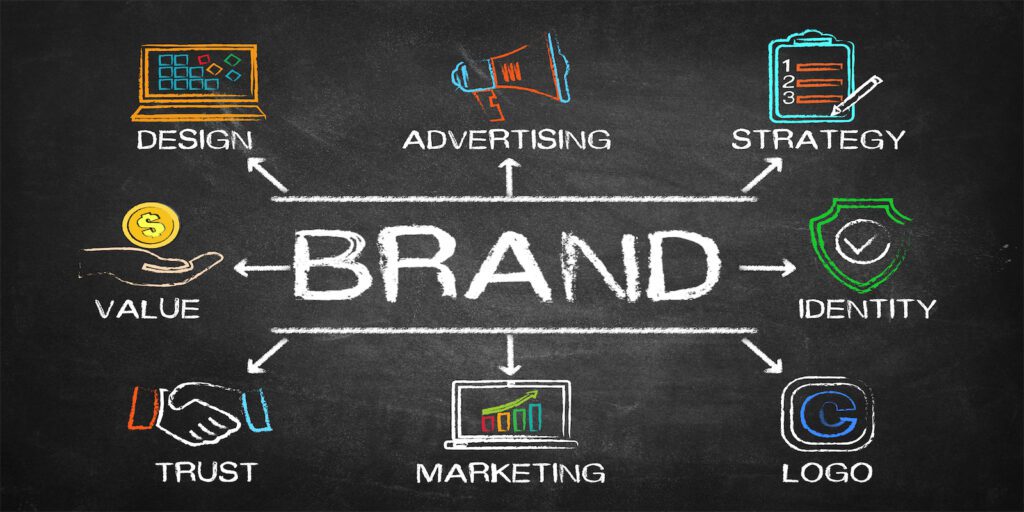Who Are You and What Do You Stand For?
About nine years ago, I first came across Steve Jobs’s 1997 “Think Different” speech.
I felt like the marketing Gods jumped out of my monitor and punched me in the face.
There he was, in what appeared to resemble one of those terrible quality bootleg videos that used to go around years back, going on about brands, consumer behavior, psychology, and all sorts of wisdom that was on an entirely new level for me at that time.
If you’ve never heard this talk, I implore you to dedicate seven minutes to watching and listening.
Apple’s “Think Different” campaign in 1997 broke the mold. Their team completely shifted their approach to branding through incredible innovation, intelligence, and ingenuity.
“𝘞𝘦 𝘯𝘦𝘦𝘥 𝘵𝘰 𝘣𝘳𝘪𝘯𝘨 𝘪𝘵 𝘣𝘢𝘤𝘬.
𝘛𝘩𝘦 𝘸𝘢𝘺 𝘵𝘰 𝘥𝘰 𝘵𝘩𝘢𝘵 𝘪𝘴 𝘯𝘰𝘵 𝘵𝘰 𝘵𝘢𝘭𝘬 𝘢𝘣𝘰𝘶𝘵 𝘴𝘱𝘦𝘦𝘥 𝘢𝘯𝘥 𝘧𝘦𝘦𝘴.
𝘐𝘵’𝘴 𝘯𝘰𝘵 𝘵𝘰 𝘵𝘢𝘭𝘬 𝘢𝘣𝘰𝘶𝘵 𝘉𝘪𝘵𝘴 𝘢𝘯𝘥 𝘔𝘦𝘨𝘢𝘩𝘦𝘳𝘵𝘻.”

A New Approach to Branding
Steve Jobs went on to enlighten the world on this new approach: instead of spending millions on advertising that focused on the features of Apple’s products, they chose to connect with their consumers on a much deeper level.
➳ 𝗪𝗵𝗼 𝗶𝘀 𝗔𝗽𝗽𝗹𝗲?
➳ 𝗪𝗵𝗮𝘁 𝗱𝗼 𝘁𝗵𝗲𝘆 𝘀𝘁𝗮𝗻𝗱 𝗳𝗼𝗿?
➳ 𝗪𝗵𝗲𝗿𝗲 𝗱𝗼 𝘁𝗵𝗲𝘆 𝗳𝗶𝘁 𝗶𝗻 𝘁𝗼𝗱𝗮𝘆’𝘀 𝘄𝗼𝗿𝗹𝗱?
These were questions Apple set out to answer and share with the world.
This shift in paradigm and these marketing gems have proven to be timeless.
Give Your Brand a Voice
Simon Sinek, a phenomenal author, and thought leader published his legendary book “Start With Why” 14 years later, elaborating on the core principal Steve Jobs first shared.
“People don’t buy what you do; 𝘁𝗵𝗲𝘆 𝗯𝘂𝘆 𝘄𝗵𝘆 𝘆𝗼𝘂 𝗱𝗼 𝗶𝘁. The goal is not to do business with everyone who needs what you have – the goal is to do business with people who believe what you believe.”
Sinek explained Apple’s “Think Different” campaign in detail. He outlines how Apple first defines its persona. They only make a sales pitch once the audience understands exactly who they are
“Everything we do, we believe in challenging the status quo. We believe in thinking differently. The way we challenge the status quo is by making our products beautiful, simple and user friendly. 𝗪𝗲 𝗷𝘂𝘀𝘁 𝗵𝗮𝗽𝗽𝗲𝗻 𝘁𝗼 𝗺𝗮𝗸𝗲 𝗴𝗿𝗲𝗮𝘁 𝗰𝗼𝗺𝗽𝘂𝘁𝗲𝗿𝘀.”

There’s been a lot of talk about building brands over these last few years. How many “operators” are truly building authentic brands, though? How many operators place just as much emphasis on selling their “story” as they are their products?
Some play Chess, while others play Checkers.
This afternoon, I challenge you to consider these questions and ask yourself if you’re satisfied with how you can answer them.
➳ Who are you?
➳ What do you stand for?
➳ Where do you fit in today’s world?
